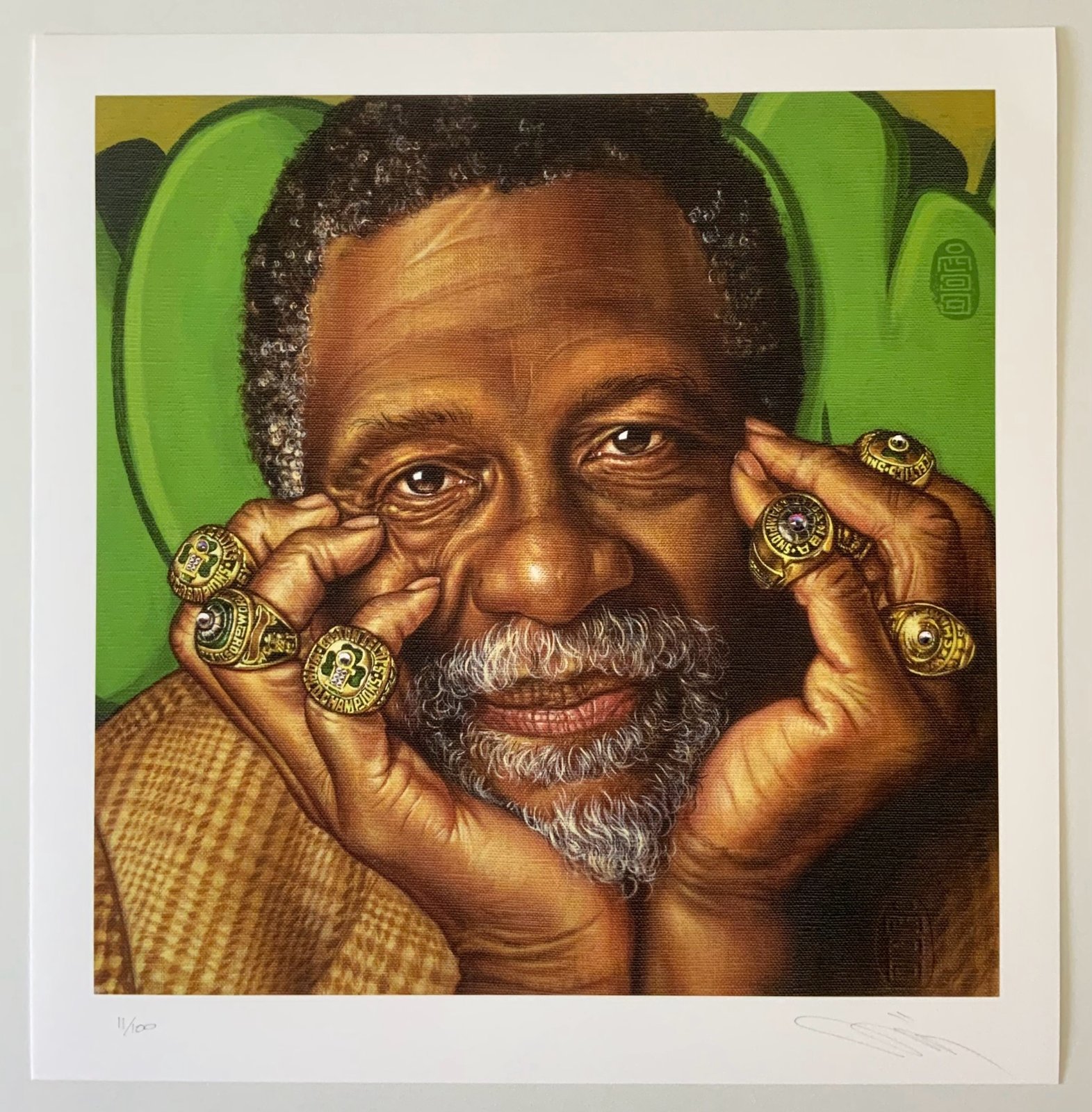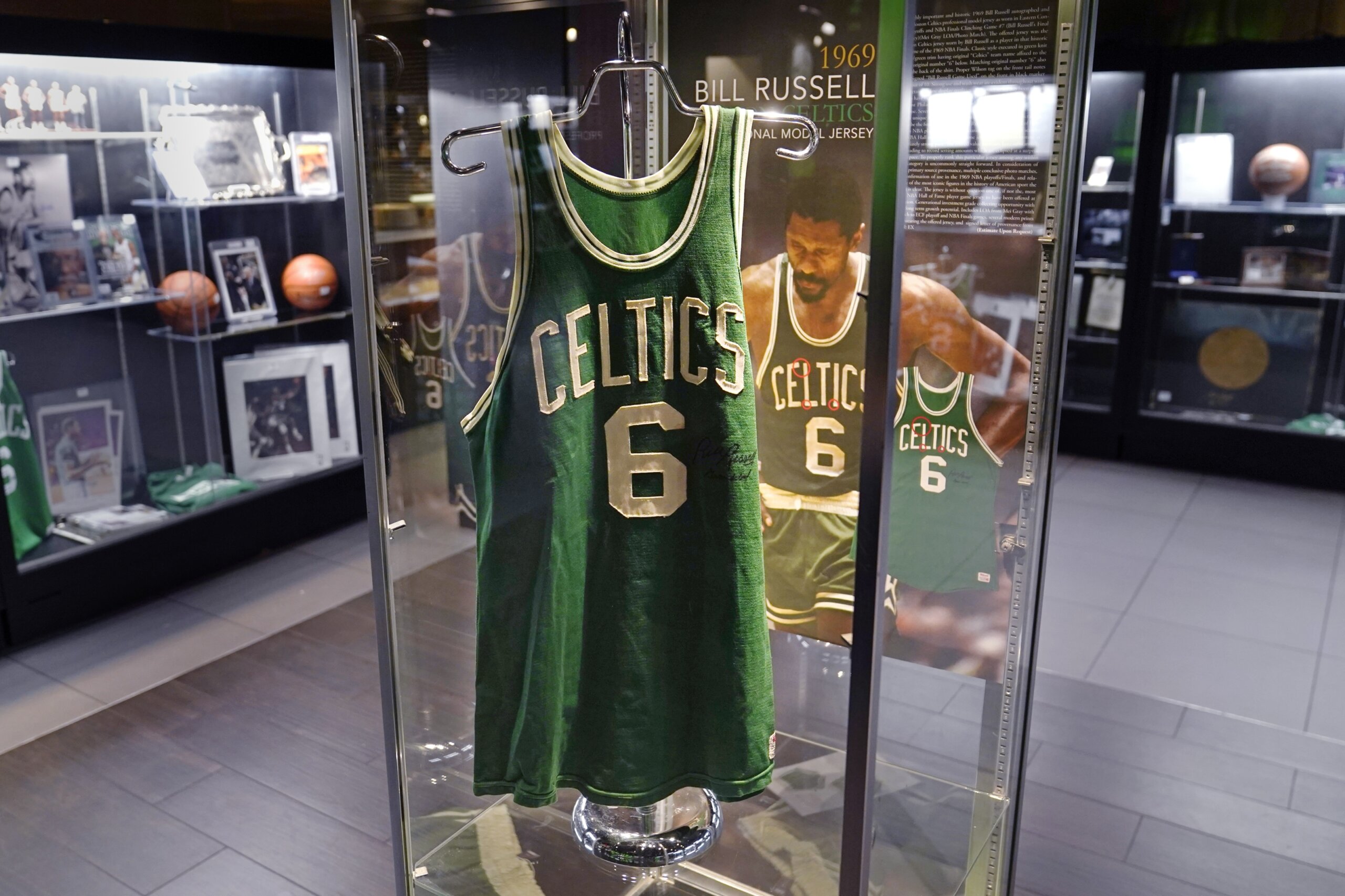Bill Russell's rings stand as a testament to his unparalleled success in the world of basketball. With a career spanning over a decade, Russell not only revolutionized the game but also set records that remain unbroken to this day. As one of the most celebrated athletes in NBA history, his achievements extend far beyond the court, shaping the culture of teamwork, leadership, and perseverance. This article delves into the extraordinary legacy of Bill Russell's rings, exploring their significance, the man behind them, and the lessons we can learn from his remarkable journey.
Bill Russell, often regarded as the greatest defensive player in NBA history, accumulated an astonishing 11 championship rings during his time with the Boston Celtics. This achievement is not just a number; it symbolizes a dynasty, a period of dominance that transformed the NBA into the global phenomenon it is today. Russell's leadership, coupled with his extraordinary skills, made him the cornerstone of the Celtics' success in the 1950s and 1960s. His story is one of resilience, determination, and an unwavering commitment to excellence.
Understanding the magnitude of Bill Russell's rings requires a closer look at the man himself, the era in which he played, and the impact he had on the game. From his early days as a young athlete to his role as a trailblazer for racial equality, Russell's legacy transcends basketball. In this article, we will explore the significance of his rings, the challenges he overcame, and the enduring influence he has left on the sport and society.
Read also:Wendys Family Size Nuggets 2024 Everything You Need To Know
Table of Contents
- Biography of Bill Russell
- The Legacy of Bill Russell's Rings
- The Celtics Dynasty and Russell's Role
- Bill Russell's Defensive Prowess
- Leadership Beyond the Court
- Bill Russell and the Fight for Racial Equality
- Unbreakable Records and Achievements
- Personal Life and Biodata
- Impact on Modern Basketball
- Conclusion: Lessons from Bill Russell's Legacy
Biography of Bill Russell
Bill Russell was born on February 12, 1934, in Monroe, Louisiana. Growing up in a racially segregated America, Russell faced numerous challenges, but his determination and passion for basketball helped him rise above adversity. He attended McClymonds High School in Oakland, California, where he began to showcase his exceptional talent on the court. Despite his initial struggles with coordination, Russell's hard work and dedication transformed him into a formidable athlete.
Russell's collegiate career at the University of San Francisco (USF) marked the beginning of his rise to fame. Under the guidance of coach Phil Woolpert, he led the Dons to back-to-back NCAA championships in 1955 and 1956. His dominance on the defensive end and his ability to control the game with his rebounding and shot-blocking set him apart from his peers. These achievements caught the attention of NBA scouts, paving the way for his professional career.
Personal Information and Biodata
| Full Name | William Felton Russell |
|---|---|
| Date of Birth | February 12, 1934 |
| Place of Birth | Monroe, Louisiana, USA |
| Height | 6 feet 10 inches (2.08 m) |
| Weight | 215 pounds (98 kg) |
| NBA Career | 1956–1969 |
| Teams | Boston Celtics |
| Championships | 11 |
The Legacy of Bill Russell's Rings
Bill Russell's rings are more than just trophies; they represent a legacy of excellence and teamwork. Winning 11 championships in 13 seasons is a feat that has never been matched in professional sports. Russell's ability to lead his team to victory year after year was a testament to his unparalleled leadership and basketball IQ. His rings are a symbol of the Boston Celtics' dynasty and the era of dominance they enjoyed during the 1950s and 1960s.
What makes Russell's achievement even more remarkable is the context in which it occurred. During his career, the NBA was still in its infancy, and racial tensions were high. As one of the first African American players to achieve widespread recognition, Russell faced discrimination both on and off the court. Despite these challenges, he remained focused on his goals, using his platform to advocate for equality and justice.
Why Russell's Rings Are Unique
- 11 championships in 13 seasons
- First African American head coach in NBA history
- Revolutionized the concept of team defense
- Inspired future generations of players
The Celtics Dynasty and Russell's Role
The Boston Celtics' dynasty of the 1950s and 1960s is one of the most celebrated periods in NBA history, and Bill Russell was at the heart of it. Under the leadership of coach Red Auerbach, the Celtics assembled a roster of talented players who complemented Russell's defensive prowess. Together, they created a culture of teamwork and selflessness that became the foundation of their success.
Russell's role as the team's center was crucial. His ability to control the boards, block shots, and initiate fast breaks made him the ultimate defensive anchor. He was also a master of psychological warfare, using his presence and leadership to intimidate opponents and inspire his teammates. Russell's impact on the game was so profound that he was often referred to as the "ultimate team player."
Read also:Matt Gaetz Scandal Unpacking The Controversies And Legal Challenges
Bill Russell's Defensive Prowess
While many players are celebrated for their scoring abilities, Bill Russell's legacy is defined by his defensive skills. At a time when defense was often overlooked, Russell revolutionized the game by emphasizing its importance. His shot-blocking ability, unmatched rebounding, and court vision made him a nightmare for opposing teams.
Russell's defensive philosophy was simple yet effective: control the paint and limit second-chance opportunities. He averaged an estimated 22.5 rebounds per game over his career, a statistic that underscores his dominance on the boards. Although blocked shots were not officially recorded during his era, it is widely believed that Russell averaged over 8 blocks per game, a testament to his ability to alter the course of a game with his defense.
Key Defensive Achievements
- 5-time NBA MVP
- 12-time All-Star
- 1-time NBA Finals MVP
- 4-time rebounding champion
Leadership Beyond the Court
Bill Russell's leadership extended far beyond his on-court performance. As the first African American head coach in NBA history, he broke barriers and paved the way for future generations of minority coaches. His tenure as player-coach of the Celtics from 1966 to 1969 was marked by continued success, as he led the team to two more championships.
Off the court, Russell was a vocal advocate for civil rights and social justice. He participated in the 1963 March on Washington and stood alongside other prominent figures in the fight for racial equality. His courage and conviction inspired countless individuals and demonstrated the power of using one's platform for positive change.
Bill Russell and the Fight for Racial Equality
Bill Russell's contributions to racial equality are as significant as his achievements in basketball. Growing up in a segregated America, Russell experienced firsthand the injustices faced by African Americans. He used his status as a professional athlete to challenge systemic racism and advocate for equal rights.
One of the most notable examples of Russell's activism occurred in 1961, when he refused to play in an exhibition game in Lexington, Kentucky, after he and his African American teammates were denied service at a restaurant. This act of defiance highlighted the racial discrimination prevalent in the United States and brought national attention to the issue.
Key Moments in Russell's Activism
- Participated in the 1963 March on Washington
- Boycotted an exhibition game in Lexington, Kentucky
- Spoke out against racial injustice in interviews and public appearances
Unbreakable Records and Achievements
Bill Russell's achievements on the court are nothing short of extraordinary. In addition to his 11 championship rings, he holds numerous records that remain unbroken to this day. His dominance as a rebounder and defender set a standard that few players have been able to match.
Some of Russell's most notable records include his 21,620 career rebounds, which rank second all-time in NBA history, and his 51 rebounds in a single game, a record that still stands. His ability to control the boards and alter the course of a game with his defense made him a true pioneer in the sport.
Key Records and Achievements
- 11 NBA championships
- 21,620 career rebounds
- 51 rebounds in a single game
- 5-time NBA MVP
Personal Life and Biodata
While Bill Russell's professional achievements are well-documented, his personal life is equally fascinating. He was married twice and had three children. Despite his fame, Russell valued his privacy and often kept his personal life out of the spotlight.
Russell's post-retirement years were marked by continued activism and contributions to the basketball community. He remained a vocal advocate for social justice and was honored with numerous awards for his impact on the sport and society.
Impact on Modern Basketball
Bill Russell's influence on modern basketball is undeniable. His emphasis on defense and teamwork has shaped the way the game is played today. Many of the strategies and techniques he pioneered are still used by coaches and players at all levels of the sport.
Russell's legacy also extends to his role as a trailblazer for African American athletes. His success and activism paved the way for future generations, proving that athletes can be both champions on the court and advocates for change off it.
Conclusion: Lessons from Bill Russell's Legacy
Bill Russell's rings are more than just symbols of victory; they represent a legacy of excellence, leadership, and resilience. His achievements on the court and his contributions to society serve as a reminder of the power of determination and the importance of using one's platform for positive change.
As we reflect on Russell's remarkable career, we are reminded of the values he embodied: teamwork, perseverance, and a commitment to justice. His story continues to inspire athletes and individuals around the world, proving that true greatness is measured not only by trophies but also by the impact one has on others.
We invite you to share your thoughts on Bill Russell's legacy in the comments below. How has his story inspired you? Don't forget to share this article with fellow basketball enthusiasts and explore more content on our site to learn about other legendary figures in sports history.


